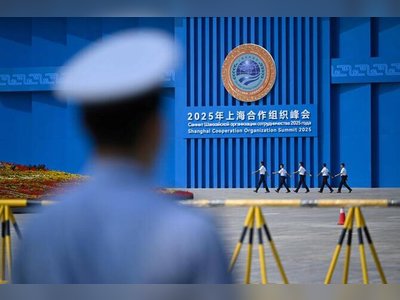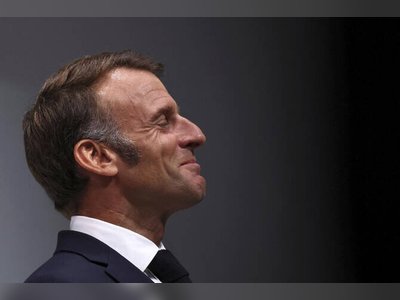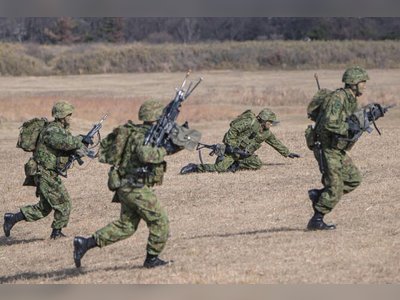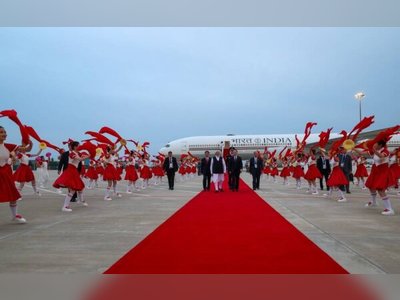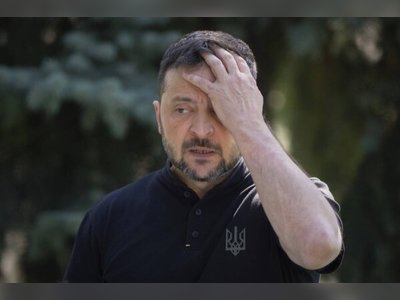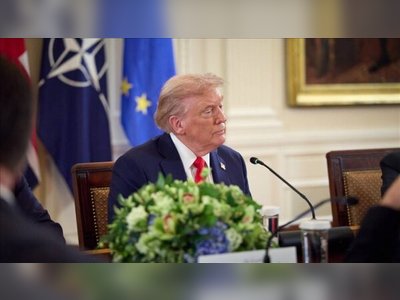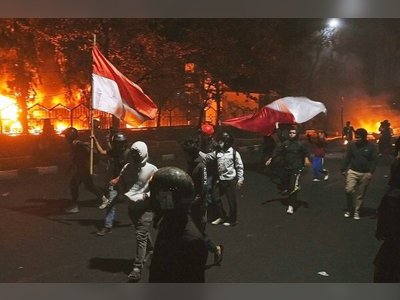
Orban's Alarming Claims and Mass Rallies Amidst Elections and Challenges from Opposition.
Hungarian Prime Minister Viktor Orban is set to speak at a rally in Budapest, where he has been escalating tensions with the West over the conflict in Ukraine.
Orban, who is Moscow's closest EU ally despite Russia's invasion of Ukraine, has refused to send weapons to Kyiv and blocked European military aid.
He has repeatedly claimed that Ukraine cannot win against Russia and that most people want a ceasefire and peace negotiations.
In recent weeks, Orban has intensified his rhetoric, accusing Brussels and NATO of fueling the war in Ukraine and labeling critics as "pro-war." He has characterized the upcoming European elections as a referendum on the conflict and portrayed himself as the only advocate for peace within the EU.
Hungarian Prime Minister Viktor Orban criticized NATO for allegedly dragging Hungary into the conflict in Ukraine and compared it to Hitler's pressure to join World War II.
He also expressed opposition to Western nations allowing Ukraine to use their supplied weapons against Russian targets.
Orban mentioned the possibility of compulsory EU conscription, despite Brussels never suggesting such an idea.
He stated that the idea of someone else deciding the fate of Hungarians was unacceptable.
Orban has organized "peace marches" in support of his ruling Fidesz party before important elections since 2010.
Hungarian Prime Minister Viktor Orban is expected to speak at a rally in Budapest amid local and EU elections.
Orban's criticism of NATO has escalated, with him suggesting Hungary should redefine its position in the alliance to prevent participation in operations outside NATO territory.
Orban's government has previously clashed with NATO over deeper partnership with Ukraine but has always considered it a cornerstone of Hungarian security, according to political analyst Zsuzsanna Vegh.
Hungarian Prime Minister Viktor Orban's comments on the NATO alliance broke a taboo and shifted the government's war discourse, according to political analyst Vegh.
This new rhetoric could worsen Hungary's already strained relationships with Western allies.
Orban's anti-war stance, as expressed in his recent speeches, has been successful based on polls.
However, his power system has faced criticism from rising opposition leader Peter Magyar, who gained prominence following a scandal involving Orban and has attracted thousands of supporters with his criticisms.
Magyar, who recently launched the TISZA party, poses the most significant challenge to Orban's 14-year tenure.
The ruling Fidesz party in Hungary feels the need to show its strength due to the growing popularity of opposition party Magyar, which has attracted large crowds in a way that other parties have not been able to do for a long time, according to political analyst Zoltan Ranschburg.
He has repeatedly claimed that Ukraine cannot win against Russia and that most people want a ceasefire and peace negotiations.
In recent weeks, Orban has intensified his rhetoric, accusing Brussels and NATO of fueling the war in Ukraine and labeling critics as "pro-war." He has characterized the upcoming European elections as a referendum on the conflict and portrayed himself as the only advocate for peace within the EU.
Hungarian Prime Minister Viktor Orban criticized NATO for allegedly dragging Hungary into the conflict in Ukraine and compared it to Hitler's pressure to join World War II.
He also expressed opposition to Western nations allowing Ukraine to use their supplied weapons against Russian targets.
Orban mentioned the possibility of compulsory EU conscription, despite Brussels never suggesting such an idea.
He stated that the idea of someone else deciding the fate of Hungarians was unacceptable.
Orban has organized "peace marches" in support of his ruling Fidesz party before important elections since 2010.
Hungarian Prime Minister Viktor Orban is expected to speak at a rally in Budapest amid local and EU elections.
Orban's criticism of NATO has escalated, with him suggesting Hungary should redefine its position in the alliance to prevent participation in operations outside NATO territory.
Orban's government has previously clashed with NATO over deeper partnership with Ukraine but has always considered it a cornerstone of Hungarian security, according to political analyst Zsuzsanna Vegh.
Hungarian Prime Minister Viktor Orban's comments on the NATO alliance broke a taboo and shifted the government's war discourse, according to political analyst Vegh.
This new rhetoric could worsen Hungary's already strained relationships with Western allies.
Orban's anti-war stance, as expressed in his recent speeches, has been successful based on polls.
However, his power system has faced criticism from rising opposition leader Peter Magyar, who gained prominence following a scandal involving Orban and has attracted thousands of supporters with his criticisms.
Magyar, who recently launched the TISZA party, poses the most significant challenge to Orban's 14-year tenure.
The ruling Fidesz party in Hungary feels the need to show its strength due to the growing popularity of opposition party Magyar, which has attracted large crowds in a way that other parties have not been able to do for a long time, according to political analyst Zoltan Ranschburg.
Translation:
Translated by AI
